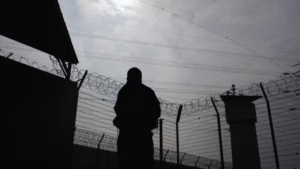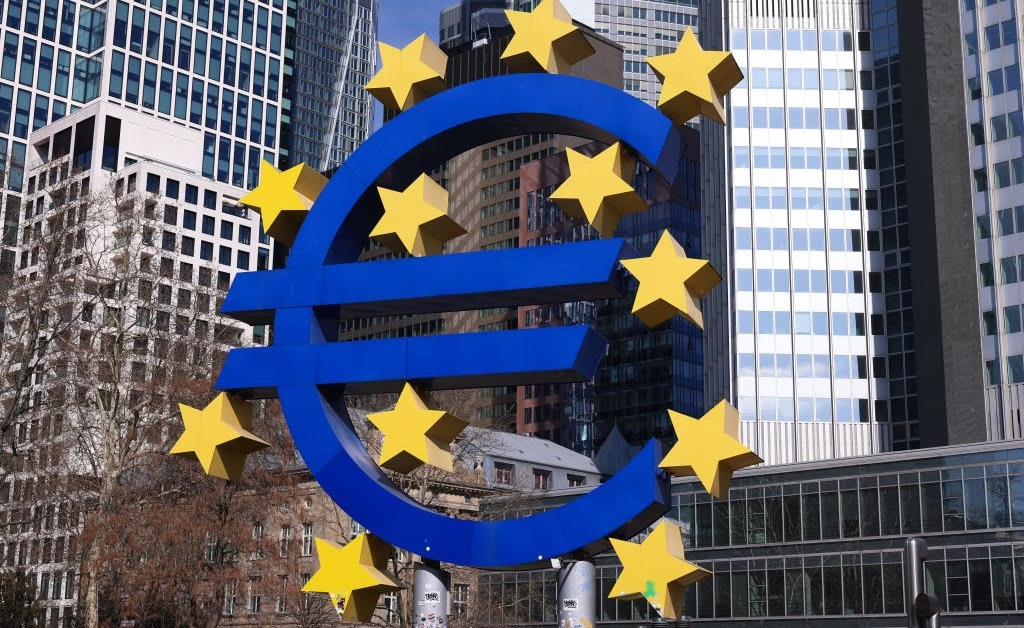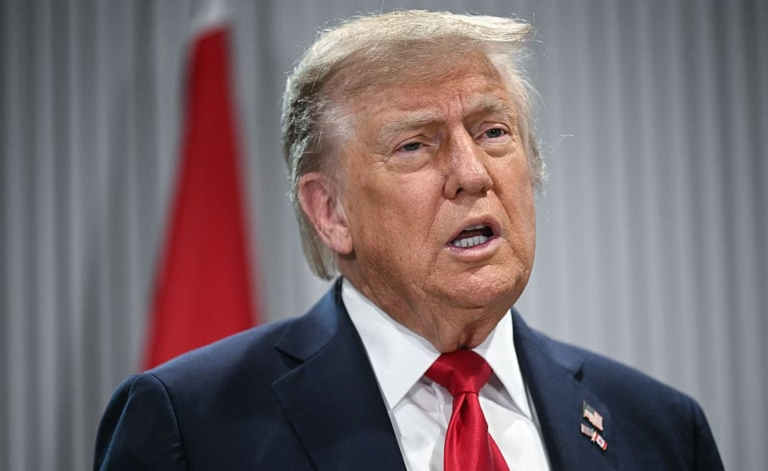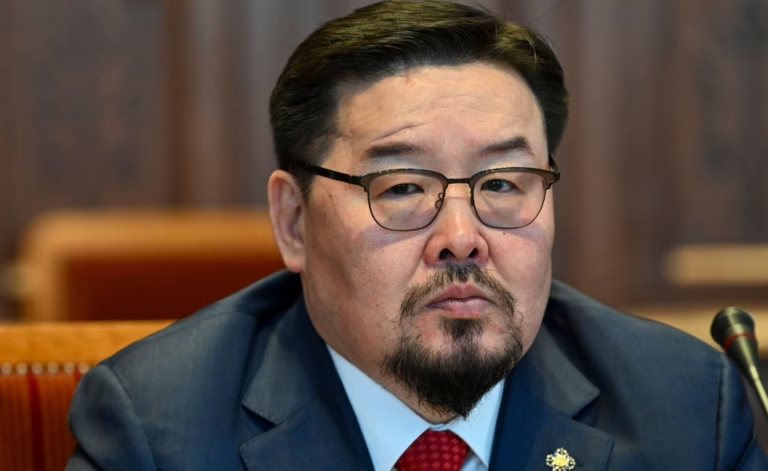FRANKFURT, Germany — With U.S. support for Ukraine in doubt, Kyiv’s European allies are considering whether to seize $300 billion in frozen Russian assets and use the funds to compensate Ukraine, support its military, and aid in rebuilding destroyed homes and towns.
For now, the assets remain frozen, with opponents of seizure arguing that the move may violate international law and destabilize financial markets.
Here are key points to understand the debate surrounding the Kremlin assets frozen shortly after Russia’s full-scale invasion in early 2022:
What are the assets and where are they?
Initially, the funds were invested in short-term government bonds held as reserves for the Russian central bank. Currently, most of these bonds have matured and turned into cash held in custodian banks. Some 210 billion euros are in European Union countries, with the largest portion, approximately 183 billion euros, at Euroclear, a Belgian clearinghouse for financial transactions. Other amounts are in financial institutions located in the United Kingdom, Japan, France, Canada, Switzerland, Australia, and Singapore.
So far, the Group of Seven democracies have used the interest from the frozen cash to finance $50 billion in advance assistance to Ukraine by borrowing against future interest income. This solution avoids legal and financial complications associated with outright appropriating the money and giving it to Ukraine.
Who is advocating for seizing the assets and why?
Some of Ukraine’s allies—such as Poland, the United Kingdom, and the Baltic states of Lithuania, Latvia, and Estonia—advocate taking the principal as well, considering the extensive damage Russia has inflicted. The World Bank estimates that reconstructing Ukraine will require $524 billion over a decade, exceeding the total amount of Russian assets. If one or more Western governments are hesitant to seize the assets, the others willing to proceed could still do so.
Meanwhile, Ukraine’s European allies are considering increasing their financial aid following U.S. President Donald Trump’s statements that Europe should take care of its own security. Some allies, like France and Belgium, are already struggling with significant debt levels exceeding 100% of their gross domestic product.
Why do France, Germany, and Belgium oppose seizing the assets?
European leaders argue that seizing the assets would mean losing leverage in future peace negotiations or ceasefires.
French Finance Minister Eric Lombard stated that seizing assets in central banks is against international law. He believes that seizing Russian assets without legal grounds “could pose a risk to European financial stability.”
“I urge caution regarding those frozen assets,” Belgian Prime Minister Bart De Wever stated at a March 6 EU summit. “At the moment, they serve as a golden egg that benefits Ukraine.”
Opponents of seizure also fear that countries and investors would avoid European financial institutions if they are concerned about assets being seized, undermining the euro’s role as an international currency for state reserves.
Governments are particularly concerned about countries like Saudi Arabia and China potentially selling European government bonds in response, as pointed out by Elina Ribakova, an economist with the Brussels-based think tank Bruegel. This would increase borrowing costs for countries already heavily in debt.
Ribakova supports seizure, arguing that the European Central Bank has tools to counteract any unjustified bond selloff by purchasing government bonds.
The memory of the 2010-2012 European government debt crisis also looms large. That crisis saw borrowing costs spike and raised concerns about the euro’s viability.
There is a “good deal of PTSD in the EU around messing with the EU sovereign bond market,” said Tom Keatinge, director of the Centre for Finance and Security at the Royal United Services Institute in London.
Is confiscating the assets legal under international law?
Some experts argue that seizure would be an appropriate “countermeasure.” This is a specific legal term referring to an action that would normally be considered unlawful but is justified as a means to push Russia to cease its violations of international law.
“There is no dilemma between using an aggressor’s assets to protect its victim and maintaining a commitment to the rules-based order,” wrote Nigel Gould-Davies, a senior fellow at the International Institute for Strategic Studies and Britain’s former ambassador to Belarus, in a legal analysis.
Other scholars argue that confiscation would not be a legitimate countermeasure.
One reason is that justifying a countermeasure as compensation for damages — rather than merely as a way to induce better behavior — would represent “a very significant expansion of the way we have used countermeasures in the past,” according to Ingrid Brunk, a professor of international law at Vanderbilt University Law School. “I would term it as a violation of international law on countermeasures.”
Additionally, Brunk stated that international law provides strong protection against seizing central bank reserves—as a principle that has been “absolutely sacrosanct for a century.”
“At a time when countries agree on almost nothing, this is a widely accepted rule,” Brink warned against “destabilizing one of the few absolute pillars of the international financial system.”
Keatinge stated that the legal question is “a 50-50 call” and hinges on “political will.”
Have other countries’ frozen assets been appropriated in the past?
Frozen state assets have been used to compensate victims of Iraq’s 1990 invasion of Kuwait and Iran’s 1979 seizure of the U.S. Embassy in Tehran. Brunk noted that these actions were legally justified as they were part of post-conflict peace deals: a U.N. resolution in the case of Iraq and diplomatic accords in the case of Iran.
What has Russia said or done regarding the frozen assets?
The Kremlin has repeatedly warned that seizing Russian assets would be illegitimate and undermine investors’ confidence. “We view those intentions as unlawful, and any attempt to fulfill them would entail very serious legal consequences,” Kremlin spokesman Dmitry Peskov told reporters earlier this month.
In theory, Russia could seize the assets of the estimated 1,800 Western companies that continue to operate in Russia. Recent legislation would allow state seizure of companies based in countries deemed “unfriendly,” according to Russian media reports.
However, there is less to seize from Russia’s side. Foreign companies have suffered over $170 billion in losses since 2022, often as they decided to leave Russia or scale back operations there, according to the Kyiv School of Economics.
—Burrows reported from London. Cook reported from Brussels. Associated Press writer Sylvie Corbet in Paris contributed to this report.







